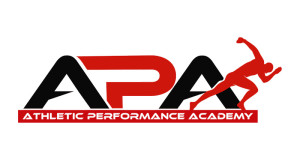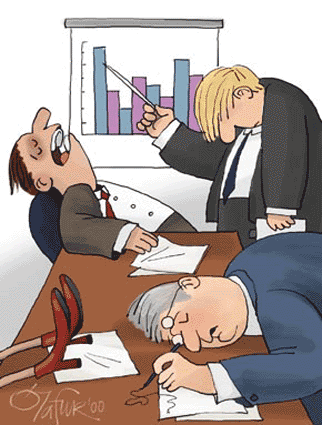Middlesex Student S&C Conference 2015 Review
Like many of us busy coaches, going to a conference represents a time for reflection before we get back to to our respective roles. I had the pleasure to attend the recent Middlesex University Student S&C Conference which I believe is in it’s sixth year, with over 100 delegates in attendance.
If you’re a Strength & Conditioning coach then this is the must go to event. I thought it would be appropriate to feedback a few of the key messages and applied methodologies presented at the presentations I made notes on. I will discuss two now and I’ll send you the remaining two in a week’s time so watch out for them every Friday!
Barry Drust
Professor of Applied Exercise Physiology (Liverpool John Moores University)
Consultant Sport Scientist to Liverpool FC and England National Team
Physical Preparation of Elite Football Players
Key challenges:
- Limited availability of training in-season: 111 days out of 304 days, which doesn’t account for international fixtures so even less time for Premiership clubs to work with pros on S&C.
- It is imperative therefore to maximise use of small sided games (SSG).
- Effective aerobic protocol 4 x 4-minute @90-95% Heart rate maximum
SSG can be effective for high intensity aerobic training but you need to be able to modify the rules to account for differences in players.
Barry is actually moving away from SSG and designing Position Specific training drills. For example, a slalom course that replicates sport specific movements.
Resistance Training:
Research at Premiership Academies shows that there is no further increase in training load from 15 years to 21 years in footballers. There doesn’t seem to be opportunities to further load them after they reach 15, and approach pro contracts. This typically amounts to 2 S&C sessions per week.
Concurrent training:
Ideally he would like players to have several hours between football and S&C sessions but players usually don’t want to leave the training ground and come back in the afternoon. So they usually either have a short break or go straight into their S&C session after their football.
We know that doing endurance training after strength training can ‘blunt’ the neurological response. But some times you might want endurance to be the focus, in which case this may be desirable if metabolic gains are a priority. Also consider that performing a football session followed by an S&C endurance session in glycogen depleted state may limit availability of energy and increase aerobic performance.
Monitoring:
In his work with Liverpool FC they use:
- GPS- regularly
- Subjective questionnaires- less so now
- Biochemical (saliva)
- Performance indicators- less often
He said the GPS data has measurement issues as it is not sensitive enough to all the small changes in movements.
(Interesting side note- my friend Alex Cockram said that the EIS are using joint position tools to measure knee angle to indicate how many lunges and decelerations take place in badminton as a way to gauge mechanical load!!!
In season Weekly Schedule:
Doing high training loads (say >6000m running versus >1000m) limits player availability for the next weekend.
Key take home message- take 2 days recover after match days
Bad approach: GAME > OFF > Train (High Load)
Good approach: GAME > OFF > Team recovery (Low load)
Working in Teams:
Survival in the game is about social skills not just coaching skills!
Are you ‘Organisationally Socialised‘ to understand the world through other’s eyes and manage relationships with key stake holders in the sport. They may appear to want to work with you but behind your back they may be looking to get you out.
Be aware of a wolf in sheep’s clothing.
Dave Hembrough
Sport science officer (Sheffield Hallam University)
Lead strength and conditioning coach at Sheffield Hallam University, the head coach of Hallam Barbell Weightlifting club
Coaching Philosophy
Dave works in consultancy, research and teaching and in his role the University expects him to develop viable businesses that can justify his salary. In simple terms he needs to earn the university double his salary! So this talk was a bit of a philosophical look at building business, friends and success.
Getting things done:
He recommended we check out the book ‘Checklist Manisfesto’ (Atul Gawande). It talks about the importance of using checklists in business to make things work more efficiency.
Often things go bad not because you don’t know something but because you fail to apply the knowledge! Remember, wisdom is the application of knowledge!
The four D’s:
- Do it
- Delete it
- Delegate it
- Defer it
Communication:
-ITEAL acronym when managing your team
- ‘I’ ncident
- ‘T’ houghts
- ‘E’ motions
- ‘A’ ction
- ‘L’ earning
This is a good way to help you reflect on situations (incidents) that were either positive or difficult. What were you thinking? How did you feel? What action did you take and what do you learn from it?
Negotiations:
- Think Win-Win
- Be clear and consistent
- Start nice
- Stick to your principles [breaks]
- Be forgiving
Meetings:
To stop meetings getting boring and keep them productive Dave always applies a few simple rules. Rather than setting an agenda in advance, it is useful for the chairman of the meeting to agree the Top 3 Questions the group will discuss in the time allocated for the meeting, and set a time frame to discuss each question.
There will be a time keeper to keep the people to time and a Yellow card will be issued to anyone who goes off topic!!!!


